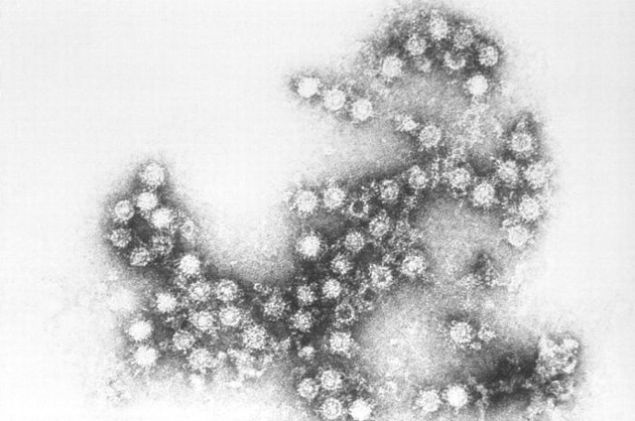VIRUS: Recent outbreaks of the rare Enterovirus DV68 in the U.S. pose a threat to student health.
By Matt Saenz, Staff Writer
The concept of maintaining good personal health and hygiene is not a new one; for decades, phrases such as “wash your hands” were commonplace. In the past few months, these phrases have become the mantras of people trying to prevent the spread of a new virus: Enterovirus DV68, or EV68. With the recent breakout in the Midewest, this virus has been rapidly spreading throughout the U.S., eventually making its way into a total of 46 states.
EV68 is one of the many non-polio enteroviruses that are currently documented. Originally discovered in California in 1962, this virus has remained relatively rare, as the Centers for Disease Control and Prevention (CDC) has reported small numbers of isolated cases each year since 1987. The majority of these cases involve babies, children or teenagers since their immune systems are not as developed as adults’. This virus primarily affects the respiratory system and can cause mild to severe respiratory illness. According to the CDC, symptoms range from relatively minor ones like coughing and sneezing to more severe ones like wheezing and difficulty breathing. The CDC explained that this respiratory illness is located “in the infected person’s respiratory secretions, such as saliva, nasal mucus or sputum.” The CDC explained that transmission of this virus likely occurs when “an infected person coughs, sneezes or touches a surface that is then touched by others,” which places an increased rate of transmission of the virus in places of high social interaction—namely schools and public buildings. Though this virus is relatively benign to pass in most cases, it remains highly contagious and has caused a death in one case in Trenton, New Jersey (CNN).
Because schools are ideal breeding grounds for this virus, faculty and parents have expressed concern over this issue. Dr. William Schaffner, an infectious disease specialist at Vanderbilt University Medical Center in Nashville, Tennessee, explained that the reason for the concern is due to the fact that, “when children get close together in school, [and] circulate for prolonged periods of time indoors, [it becomes] an ideal circumstance for this respiratory virus to spread from child to child.” As a result, many schools with reported cases have resorted to keeping students at home to control the spread of the virus. Teachers have also posted on various social media sites, urging parents to keep their students home if they do not feel well. Julianna M. Cruz, a second grade teacher in the Riverside Unified School District (RUSD), recently said, “As an elementary teacher, I see numerous children come to school sick everyday […] Please! If your child has a fever, feels too sick to work at school or is throwing up—KEEP THEM HOME.”
For students, it is important to take all necessary safety precautions encouraged by the CDC: wash hands, avoid touching eyes, nose and mouth with unwashed hands, avoid close contact, cover your coughs and sneezes, clean and disinfect frequently touched surfaces and stay home when you are sick. Not only will this ensure your own safety, but it will also help maintain a healthy learning environment needed to succeed.
Though not as extensively documented in high schools, EV68 still poses a threat to students in grades 9-12. A mere touch is all that is needed to transmit the virus; as such, it is important to educate the student population on this condition, what it can do to the body and how they can prevent it. EV68 cannot be defeated by modern medicine at this time, but preventative measures can be taken to ensure everyone’s safety.

